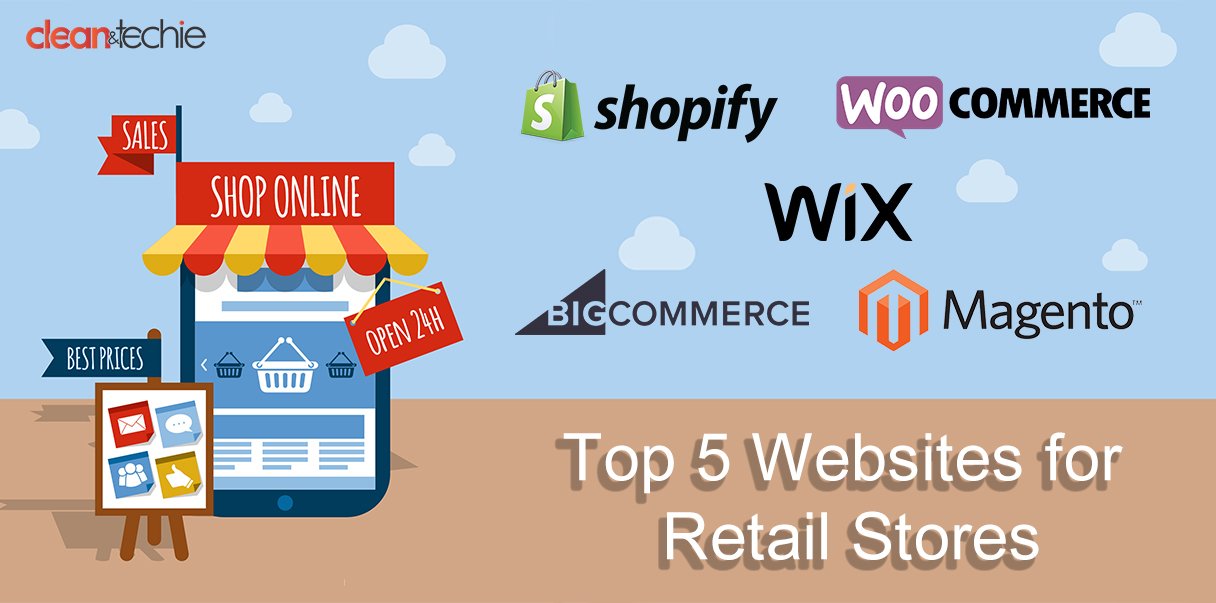Have you ever purchased anything online from the websites for retail stores? Websites for retail stores are no longer an option in today’s world, which is connected digitally.
Have you ever felt like your store’s reach is limited due to its physical location? The revolution in the digital world has changed the ways of online shopping dramatically in recent years. Limited store hours and restricted product selections are stories of the past. With an online retail website, that dream can become a reality! Amazon is a well-known example of this. The brick-and-mortar is the traditional way of doing retail business, but when it is aided by online stores, the benefits do not double up; they multiply.
In today’s digital age, where consumers seamlessly navigate between online and offline channels, a robust online presence is no longer a luxury for retail stores; it’s a necessity. A well-crafted website can be a game-changer, transforming your storefront from a physical location into a dynamic, 24/7 shopping destination. This translates into a host of benefits: happier customers who can browse products, compare features, and make purchases at their convenience; streamlined operations with automated tasks and efficient inventory management; and ultimately, a significant boost in sales as you reach a wider audience and tap into new markets.
Here’s a look at some of the top online retail websites that every retail store should be using to maximize their potential.
1. Shopify
Shopify is a leading e-commerce platform. This platform comes with almost everything you need to start, run, and grow a retail business. With Shopify’s user-friendly interface, extensive customization options, and robust support, it’s ideal for both small boutiques and large stores.
Here are some of the top features of Shopify:
Easy-to-use website builder
Secure payment processing
Inventory management
Marketing tools
2. WooCommerce
For those using WordPress, WooCommerce is the go-to e-commerce plugin. It transforms your WordPress site into a fully functional online store.
Advantages of using WooCommerce:
Seamless integration with WordPress
Extensive range of plugins and themes
Highly customizable
Large community support
3. BigCommerce
BigCommerce is another powerful e-commerce solution, known for its scalability and advanced features. It’s perfect for businesses looking to grow without being limited by their platform.
Some key features offered by this platform are:
SEO optimization tools
Flexible product management
Integration with top e-commerce websites like eBay and Amazon
Comprehensive analytics
4. Wix
Wix is an easy-to-use website builder tool. It helps in a great way for selling online. It’s perfect for small and medium-sized stores that want a simple way to set up their online shop without needing a lot of technical knowledge. Wix offers a variety of features to help you sell your products online.
Wix benefits include:
Drag-and-drop website builder
Extensive template library
App market for added functionality
Secure payment processing
5. Magento
Magento is a robust e-commerce platform designed for larger businesses with high customization needs. It offers extensive functionality and scalability, making it a top choice for enterprises.
Highlighted features of Magento are:
Advanced SEO tools
Powerful marketing and promotional tools
Customizable product catalog
Comprehensive order management
Let’s also quickly touch base on some limitations these platforms bring with them in general:
Maintenance
Building and maintaining a website requires ongoing investment. This includes website development, hosting fees, security measures, and potential ongoing maintenance costs.
Complex Returns and Exchanges:
Managing returns and exchanges can be more complicated with online sales. Shipping costs and potential damage during transit add another layer of complications.
Competition
Online shopping is preferred worldwide, making it challenging for new stores to stand out in the cutthroat competition. Appropriate and effective SEO (Search Engine Optimization) strategies play a key role in driving traffic to the website.
Security
Customers might be hesitant to provide financial information online due to security worries.This calls for building trust through secure payment gateways and clear data privacy policies.
In-Person Limitations
While websites expand their reach, at the same time they do not fully capture the experience of a physical store. Features like trying on clothes, testing electronics before actually buying them, or personalized recommendations may be absent online.
Despite these challenges, a thoughtfully designed and tested website would be a powerful tool for any retail store. By understanding the drawbacks and implementing effective strategies, you can overcome these challenges and leverage the many benefits of e-commerce.
Conclusion
As the retail landscape evolves, well-chosen websites for retail stores is no longer just a nice-to-have, it’s a critical factor for any store’s success in the digital age. It’s a long-term decision that can make or break your online presence. Whether you’re just starting out or looking to scale your business, these top websites offer a range of features and customization options specifically designed for your needs.
The right platform can help you create a seamless shopping experience for your customers, from the moment they land on your website to the final checkout. Features like easy navigation with clear menus and intuitive search bars are essential for helping customers find what they’re looking for quickly and efficiently. Furthermore, well-organized product pages with high-quality images, detailed descriptions, and customer reviews can build trust and encourage conversions. Finally, a secure and user-friendly checkout process that accepts multiple payment options will minimize cart abandonment and ensure a smooth transaction for your customers.
Also Read: Top Video Marketing Trends a CMO should know




